Aloe Vera—It’s Not Just Good for the Skin!
I was raised with the habit of turning to natural remedies for mild health issues, whether it was abrasions, psoriasis, burns, cuts, bee stings, or insect bites. The favorite go-to remedy for these issues was aloe vera. It was effective and we loved its non-invasive and gentle healing properties.
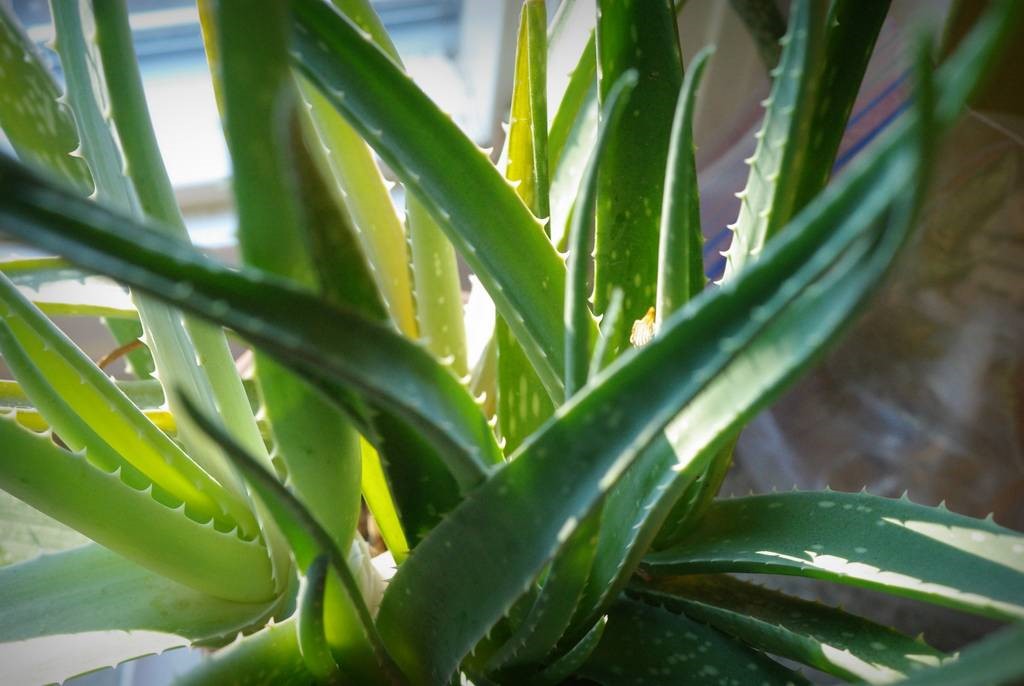
The cosmetic industry knew this, too, which is why today it's one of the primary compounds used in commercial skin care:
· It's a vulnerary (it helps heal wounds).
· It's an analgesic (it relieves wound pain).
· It's an antipruritic (it relieves or prevents itching).
· It's an astringent (it causes the contraction of body tissues, typically used to reduce bleeding from minor abrasions).
· It's a superior hydrator, moisturizer, and skin rejuvenator, due to its high water content (over 99%). Since your skin is the largest organ of your body, it absorbs everything put on it, hence the advice "Don't put anything on your skin that you wouldn't eat!" ought to be followed, and using aloe fits this bill.
· It's an outstanding and safe beauty product (it increases skin elasticity making it more flexible by repairing collagen and elastin repair; it's an emollient, helping to soften and soothe the skin; it supplies oxygen to skin cells, increasing the strength and synthesis of skin tissue and induces improved blood flow to the skin through capillary dilation).
But we'd always just used it externally. It had never been on the menu at our house. The latest information I've been reading, however, shows that this proverbial plant can be a great addition to your diet. And here's why: It's loaded with vitamins the body can't store but needs, such as vitamins A, B1, B2, B6, B12, C and E. It's high in amino and fatty acids as well as the minerals calcium, magnesium, zinc, chromium, selenium, sodium, iron, potassium, copper, manganese. And it also helps with various digestive disorders including heartburn, hyper-acidity, and constipation.
Constipation? Oh yes. It's a super plumber when it comes to cleaning out the digestive system. Aloe cleans the intestinal lining-ridding the body of any unwanted substances which might be causing you to feel under the weather.
The body has a tendency to hang onto food residues, various toxins and bacteria all of which block the intestinal lining of your digestive tract and prevent nutrients from being absorbed properly. Aloe vera can help get rid of all the junk your body no longer needs which in turn prevents various digestive problems such as indigestion, colitis, ulcers, and irritable bowel syndrome (IBS). And with constipation and these other aforementioned digestive issues no longer a problem, your body feels more energetic and weight loss becomes easier.
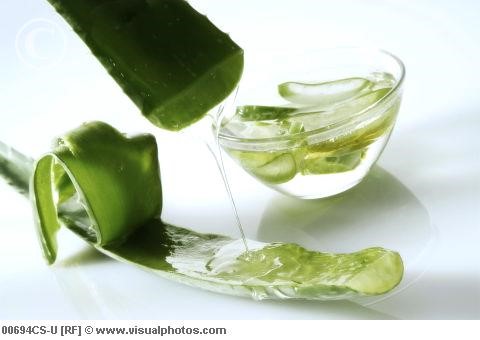
Aloe Vera is a gelatinous plant food, just like seaweeds and chia seeds. The main benefit to consuming gelatinous plant foods is that these gels move through the intestinal tract, absorbing toxins along the way, and then are efficiently eliminated through the colon. This thorough waste elimination detoxifies your body.
And besides being a disinfectant, anti-biotic, anti-microbial, germicidal, anti-bacterial, anti-septic, anti-fungal and anti-viral, it's also a well-known adaptogen. An adaptogen is something that boosts the body's natural ability to adapt to external changes and resist illness. It's a powerful adaptogen because it balances the body's immune system, stimulating defense and adaptive mechanisms. This allows you an increased ability to cope with stress (physical, emotional, and environmental stress such as pollution).
Now all this said, there is a precaution: Because this plant is incredibly medicinal and potent, there are cautions against long-term use. Just because a little is beneficial, doesn't mean that a lot is more beneficial. It should be used with a level of respect for its potency. Long-term use can lead to loss of electrolytes, especially potassium. So the best advice is to use it moderately-perhaps including it in your diet once a week, for instance.
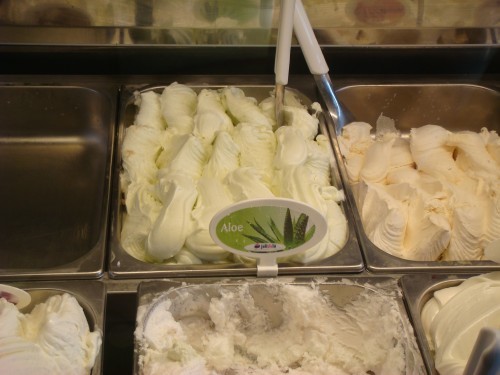
So what are some ways aloe can be included in your diet? For one, it's being used in ice cream. And it's showing up in juices, fresh and bottled, in natural food stores all over the place.
If you aren't already including aloe in your diet, you might give this idea serious consideration-it's not just good for the skin! Since I wanted to start including aloe in my diet, I got a plant and keep it in my kitchen windowsill. Here are three really good juice recipes I'm using:
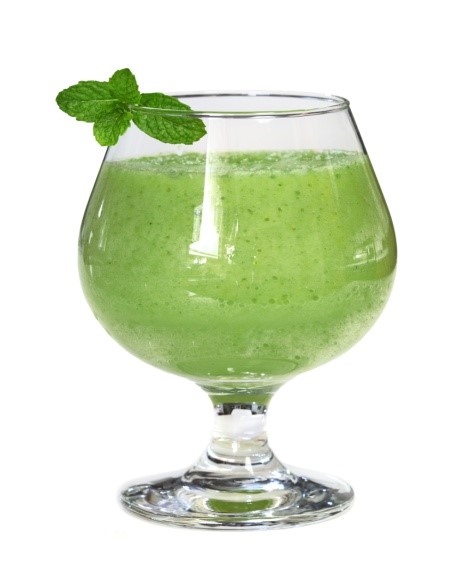
LIGHT AND LEMONY ALOE JUICE
1 cucumber
1 apple
1 lemon
2 tbsp fresh aloe vera pulp
Blend the apple and the cucumber; add lemon juice. Cut open an aloe vera leaf and scoop out 2 tbsp of the pulp and add it to the mixture. Blend until smooth.
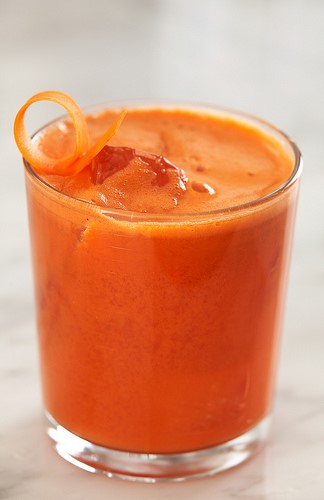
HEALTHY ALOE DRINK
2 carrots
2 green apples
1 orange, peeled
1 tbsp fresh aloe vera pulp
Cut apples, carrots and orange into pieces; blend until smooth; add the aloe vera and continue blending until smooth and creamy.
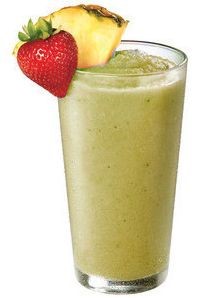
EXOTIC ALOE VERA JUICE
1-2 cup fresh pineapple
1 carrot
1 green apple
1 tbsp fresh aloe vera pulp
A few tbsp coconut milk (optional)
Blend all ingredients together, adding the pulp of the aloe vera leaf last. Besides being a tasty addition, the coconut milk actually increase the anti-bacterial and anti-viral qualities of this drink.
- www.itsnotworkitsgardening.com
- www.visualphotos.com
- www.greenprophet.com
- www.foodiecessadventures.blogspot.com
- www.healthysolutionsbydesign.com
- www.bellybytes.com
 Alice Osborne
Alice Osborne
Weekly Newsletter Contributor since 2006
Email the author! alice@dvo.com
